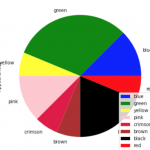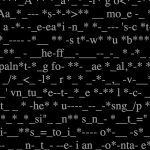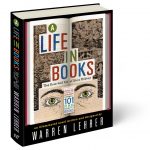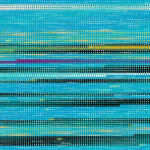electropoetics
Building STEAM for DH and Electronic Literature: An Educational Approach to Nurturing the STEAM Mindset in Higher Education

As the present gathering introduces Electronic Literature into the Digital Humanities, the DH at Berkeley Program brings the Arts/Humanities into Science, Technology, Engineering and Mathematics: turning STEM into STEAM.
Lit Mods

Seiça describes modification as an art practice meant to subvert and divert from what we—as readers, spectators, and also consumers—expect from technological apparati and platforms. He extends the study of mods to “lit mods”—including art, games, and literature.
In particular, Seiça notes that the learning curve for modding has changed: where in the past, it may have taken a certain amount of user knowledge, modification may now be automated (for instance, through Instagram filters). More importantly, he asks what lit mods show us about literary practice and literary criticism. Where fast-moving content—fast-moving e-literature and e-poetry included—may defy interpretation, so analysis is strengthened by breaking down their mechanisms.
Unhelpful Tools: Reexamining the Digital Humanities through Eugenio Tisselli’s degenerative and regenerative

Via close readings of Eugenio Tisselli's degenerative and regenerative, ¨paired works that become progressively less comprehensible the more users interact with them," we are able to grasp the ecological costs of the time we spend online. And we can begin to recognize, with Justin Berner, a concern with permanence and ephemerality in the digital sphere that is not unique to the work of Tisselli. It is, rather, a common thematic concern throughout the history of electronic literature. The term that Berner advances for this literary countertext to the instrumentalism of the Digital Humanitiers, is digital posthumanism.
A Life in Books: An Interview with Author-Designer Warren Lehrer

Here is the transcription of an extended conversation between multimedia artist and author Warren Lehrer and Brian Davis (a recent contemporary literature and poetics PhD grad from University of Maryland) that began in February 2020 at Lehrer’s studio in Queens, NY soon after the opening of the exhibition “Warren Lehrer: Books, Animation, Performance, Collaboration” at the Center for Book Arts in Manhattan. They discuss Lehrer’s recent book, Five Oceans in a Teaspoon (2019), a collection of visual poems written by Dennis J Bernstein, visualized by Lehrer, as well as Lehrer’s long running commitments to visual literature and collaborative art going back to the early 1980s. In addition to discussing several of Lehrer’s bookish projects, including his novel A Life in Books (2013), they discuss the different writing and printing technologies Lehrer has worked with and in over the years, as well as current issues in contemporary literature studies, such as documentary aesthetics, autofiction, and satire.
Collaborative Reading Praxis

Marino, Douglass, and Pressman describe their award-winning collaborative project, Reading Project: A Collaborative Analysis of William Poundstone’s Project for Tachistoscope {Bottomless Pit} (2015). Given the novelty of Poundstone’s work and its deviation from traditional forms of print-based literature, the authors break down the methods and platforms that allowed them to respond with new ways of reading—what they call “close reading (reimagined).” Indeed, their respective methods of interpreting Poundstone reminds that the field of e-literature not only brings new literary forms to our critical attention, but also necessitates that hermeneutics adapt to digital contexts as well.
Reading Project was awarded the ELO’s 2016 N. Katherine Hayles Award for Literary Criticism on Electronic Literature.